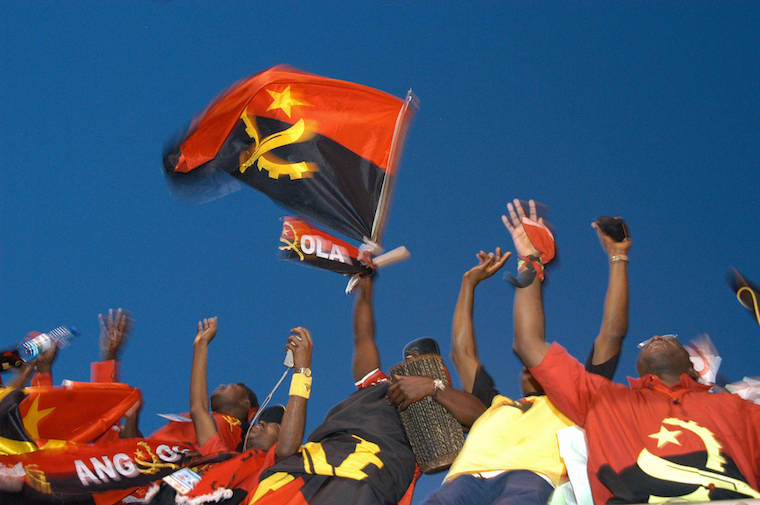The Angolan War of Independence (1961–1974) began as an uprising against forced cotton cultivation, and it became a multi-faction struggle for the control of Portugal’s overseas province of Angola among three nationalist movements and a separatist movement.[21] The war ended when a leftist military coup in Lisbon in April 1974 overthrew Portugal’s Estado Novo regime, and the new regime immediately stopped all military action in the African colonies, declaring its intention to grant them independence without delay.
The conflict is usually approached as a branch or a theater of the wider Portuguese Overseas War, which also included the independence wars of Guinea-Bissau and of Mozambique.
It was a guerrilla war in which the Portuguese armed and security forces waged a counter-insurgency campaign against armed groups mostly dispersed across sparsely populated areas of the vast Angolan countryside.[22] Many atrocities were committed by all forces involved in the conflict. In the end, the Portuguese achieved overall military victory, and before the Carnation Revolution in Portugal most of Angola’s territory was under Portuguese control.
In Angola, after the Portuguese had stopped the war, an armed conflict broke out among the nationalist movements. This war formally came to an end in January 1975 when the Portuguese government, the National Union for the Total Independence of Angola (UNITA), the Popular Movement for the Liberation of Angola (MPLA), and the National Liberation Front of Angola (FNLA) signed the Alvor Agreement.

Leave a Reply